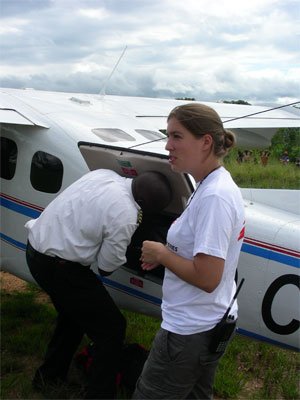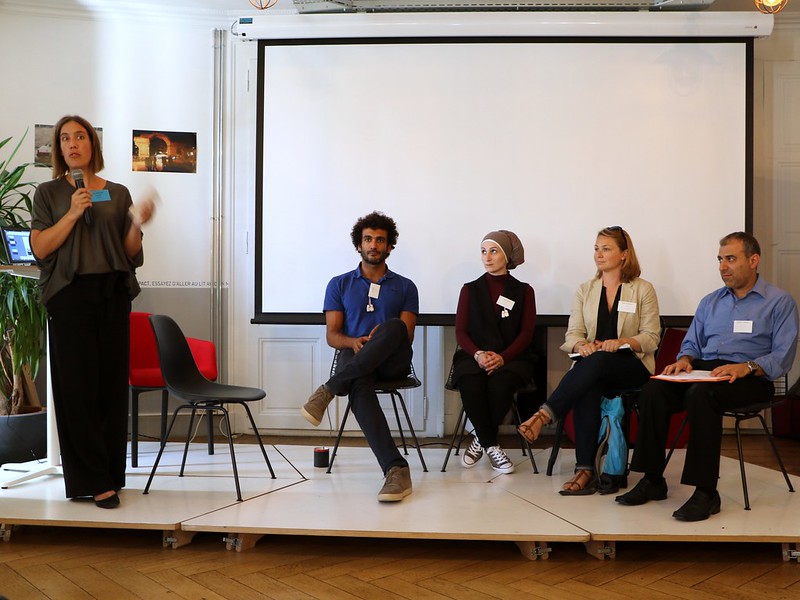It has been 6 year since first step in quitting job to enable system change
Today is a short reflection moment; it has already been six years since I took my first step toward quitting my job. On the first of September 2016, I started to work part-time. To set up a movement for more responsible relief. This movement grew into a foundation and social enterprise, and so much more has happened.
To all thinking the same: if you have a passion, a drive, a dream, go for it! Jump and do what you believe is necessary. Reflecting on what has happened since it has been all worth it, I just can not (and could not) see any other way possible then to free up my time by quitting. First part-time, half a year later full-time… Was it scary? Yes, one hundred percent. But still, I could just not not do it. I felt and knew we required change in our sector to enable more responsible aid programs. Secondly, we have to become more efficient and effective; there is not enough funding to keep going as we are humanitarians.
Becoming an 'official' humanitarian...
Since I was a young school girl, I knew I would work in no other sector than humanitarian. A solid drive to give back, a total no-brainer that we are out here in this world to support each other, unconditional support to humanity, neutral and impartial. Independent and driven by the needs of those that suffer, responsibly (For those that wish to learn more about the official humanitarian principles, stay tuned for the forthcoming training list on humanitarian principles on my blog). I initially studied tropical agriculture at the University of Wageningen. After a break of a couple of years due to health issues, I got back into the university. I changed my initial program after I had the first lecture in Humanitarian Assistance at the faculty of Disaster Studies by Thea Hilhorst.
After graduation with a BSc in International development studies with a major in Disaster Studies, I moved to Dublin to enroll in the NOHA MSc Humanitarian Assistance at the University College of Dublin. The NOHA program has been established in collaboration with DG ECHO to increase humanitarian aid expertise. To increase the overall effectiveness of relief assistance. Therefore DG ECHO set up the first European Association of Universities, providing high-level education, research, and training in Humanitarian Action. I’ve been fortunate to study and work with many NOHAs every since.

Not long after graduation, I enjoyed the organization I knew I wanted to join from the beginning: Medecins sans Frontieres. I met incredible people with MSF and learned how large principles organizations operate. I was fortunate to be surrounded by many technical experts and dedicated humanitarians, going after what is needed most to alleviate suffering and advocate for what is happening. https://www.msf.org/
From Logistician to humanitarian technology since 2010
I started as a logistician with MSF, a loggy. I knew if I ever wanted to make a significant impact, if I wanted to contribute to my sector, this is where I had to start. Understanding logistics and supply chains are crucial. We all take it for granted as just happening magically, but this is where we can change the needle. To increase the efficiency and effectiveness of our work.
In 2010 I realized when doing a MUAC screening in DRC that we humanitarians should be more responsible for how we are dealing with our data (long story on that one at a later stage). This drove me to technology, and I became passionate about it. Data-driven innovation is not a golden bullet, but technology can be used efficiently and effectively to impact how we operate as humanitarians significantly. I joined ActivityInfo after returning from the Democratic Republic of Congo and have been working on and off with various NGOs and UN entities since, from ERP implementation with MSF to field M&E and the Rapid Response Mechanisms (RRMP) with UNICEF and so many others.

Why I became a humanitarian CEO and Founder
I have been fortunate to study, receive a graduate degree, and work with amazing organizations and professionals in the humanitarian sector. My drive has always been to do good. If you realize we could do better, I could not ignore it. I often explain it as a moral obligation to do good responsibly.
I never intended to get a title like I have these days. CEO sounds crazy to me still today. But having worked from operations to logistics and analyzing the harsh reality we are in today. We can hardly secure funding for the humanitarian crises the world sees today. This means we have to reflect as humanitarians. Are we genuinely operating as efficiently and effectively as we should?
Generally, the trend in this sector (and within organizations) is to think in terms of pillars when you should think holistically. Secondly, knowledge is hardly ever changed in an open-access way where it provides operational support to all humanitarian organizations globally. We write lessons learned, but primarily for our donors and funders. We request consultants to help us with technical expertise, but their reports end up in drawers after the project is finished. Hence the establishment of the Solvoz Foundation as a guardian of open-access knowledge.

When did procurement arise, you might think, for those that know my work with Solvoz? Guess what? Procurement activities are the most significant cost component of humanitarian organizations. It comprises 65% of the budgets of humanitarian agencies! So if there is one thing we can do, it is to address potential gains we can make. Systems we can develop to increase efficiency and effectiveness will have an enormous impact on our work. Hence, from the first of September 2016, I started to focus on this, focusing on how I could start contributing to this dire need to increase our efficiency and effectiveness in our humanitarian sector — combining my passion, my drive, and humanitarian experience in operations, logistics, and technology. If that needed this crazy function title, that’s what it takes…
Earlier this year I was interviewed by Impact City in the Netherlands, on my motivation and why I do what I do. If you are interested to read more, you can find the interview here
7 thoughts on “It has been 6 year since first step in quitting job to enable system change”
Comments are closed.